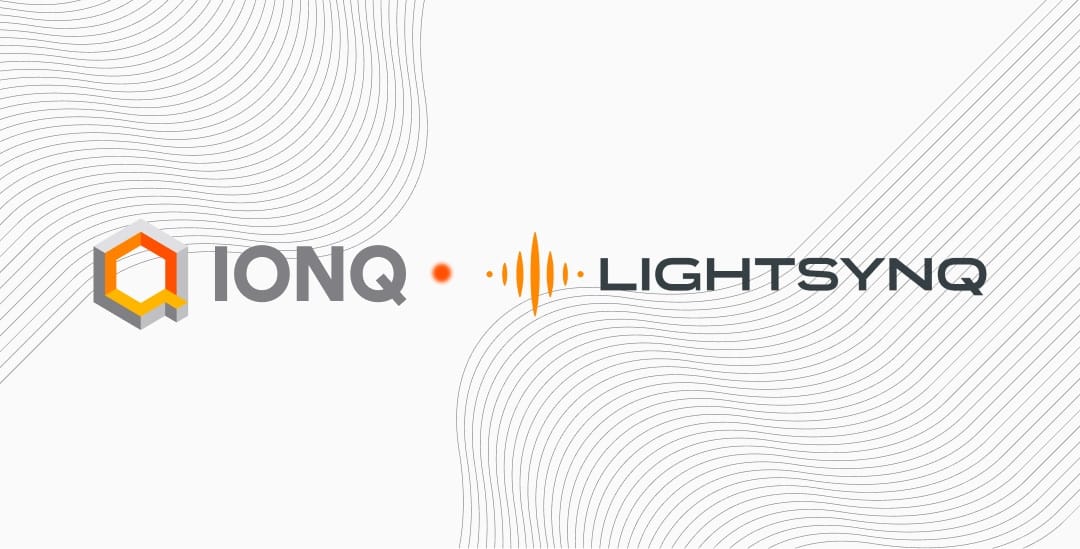The acquisition strengthens IonQ’s capabilities in photonic interconnection, quantum memory, and distributed networks, aiming to scale to millions of qubits and lead the new era of commercial quantum computing.
IonQ, a leader in commercial quantum computing, has officially announced the acquisition of Lightsynq Technologies Inc., a Boston-based startup specializing in quantum interconnection and high-fidelity quantum memory, founded by former Harvard researchers and members of the AWS Center for Quantum Networking.
The integration of Lightsynq not only brings a team of elite researchers to IonQ but also over 20 key patents related to quantum memory technologies, photonic interconnection, and quantum repeaters. This acquisition fits into IonQ’s ambitious roadmap to build large-scale quantum computers and global quantum networks, consolidating its position as one of the most advanced players in the sector.
A Key Boost for Interconnected Qubits
Lightsynq’s technology focuses on high-speed photonic interconnects, allowing multiple quantum processing units (QPUs) to be linked with low latency and high fidelity. This represents a leap toward modular scalability, a historic obstacle for traditional quantum computing.
According to Niccolò de Masi, CEO of IonQ, “the acquisition of Lightsynq allows us to significantly accelerate the development of our quantum networks through quantum repeaters, as well as expand our computing power through photonic interconnections. It’s a decisive step toward quantum systems with tens of thousands and eventually millions of qubits.”
Towards a Quantum Internet
In addition to bolstering computing capabilities, this acquisition strengthens IonQ’s plan to build a global quantum network—the so-called Quantum Internet—which will enable the exchange of quantum information between remote devices with unprecedented security and processing capacity.
Mihir Bhaskar, CEO of Lightsynq, stated: “Our goal has always been to develop the best quantum interconnectors in the world. By integrating with IonQ, we can apply this technology at scale and bring real applications of the Quantum Internet closer to key sectors such as finance, telecommunications, defense, and aerospace.”
An Aggressive Expansion Strategy
The acquisition of Lightsynq adds to other recent moves by IonQ in the quantum sector, such as the acquisition of Qubitekk and ID Quantique, as well as their collaboration with governmental entities like the ARLIS lab and the U.S. Air Force.
Additionally, IonQ has launched, alongside EPB, the first quantum innovation and networking center in the U.S., located in Chattanooga, Tennessee, and continues to expand its facilities for quantum chip and hardware manufacturing.
Next Generation: From 36 Qubits to Millions
Currently, IonQ’s systems—IonQ Forte and IonQ Forte Enterprise—operate with up to 36 algorithmic qubits, placing them among the most advanced commercial quantum computers on the market. The incorporation of technologies like those from Lightsynq will allow overcoming the physical scaling bottleneck and drastically increase the computing power available to tackle large scientific and business problems.
A Step Towards Practical Quantum Supremacy
The combination of advanced quantum memory, photonic interconnection, and quantum repeaters positions IonQ as one of the few players in the sector with a viable technical vision to achieve practical quantum supremacy: solving real problems that are beyond the reach of classical supercomputers.
About IonQ
IonQ (NYSE: IONQ) is a pioneer in quantum computing and networking. Its quantum computers are available on major cloud providers like AWS, Azure, and Google Cloud. It has been recognized for its rapid growth in rankings such as the Newsweek Excellence Index 1000 or Forbes Most Successful Mid-Cap Companies of 2025.
About Lightsynq
Lightsynq is a startup specializing in quantum interconnection and networking, founded by Harvard researchers and former AWS employees. They are responsible for developing the first functional quantum repeater, a key technology for extending the reach of quantum networks.
Source: IonQ

